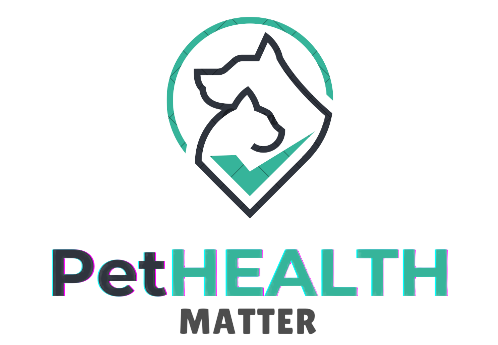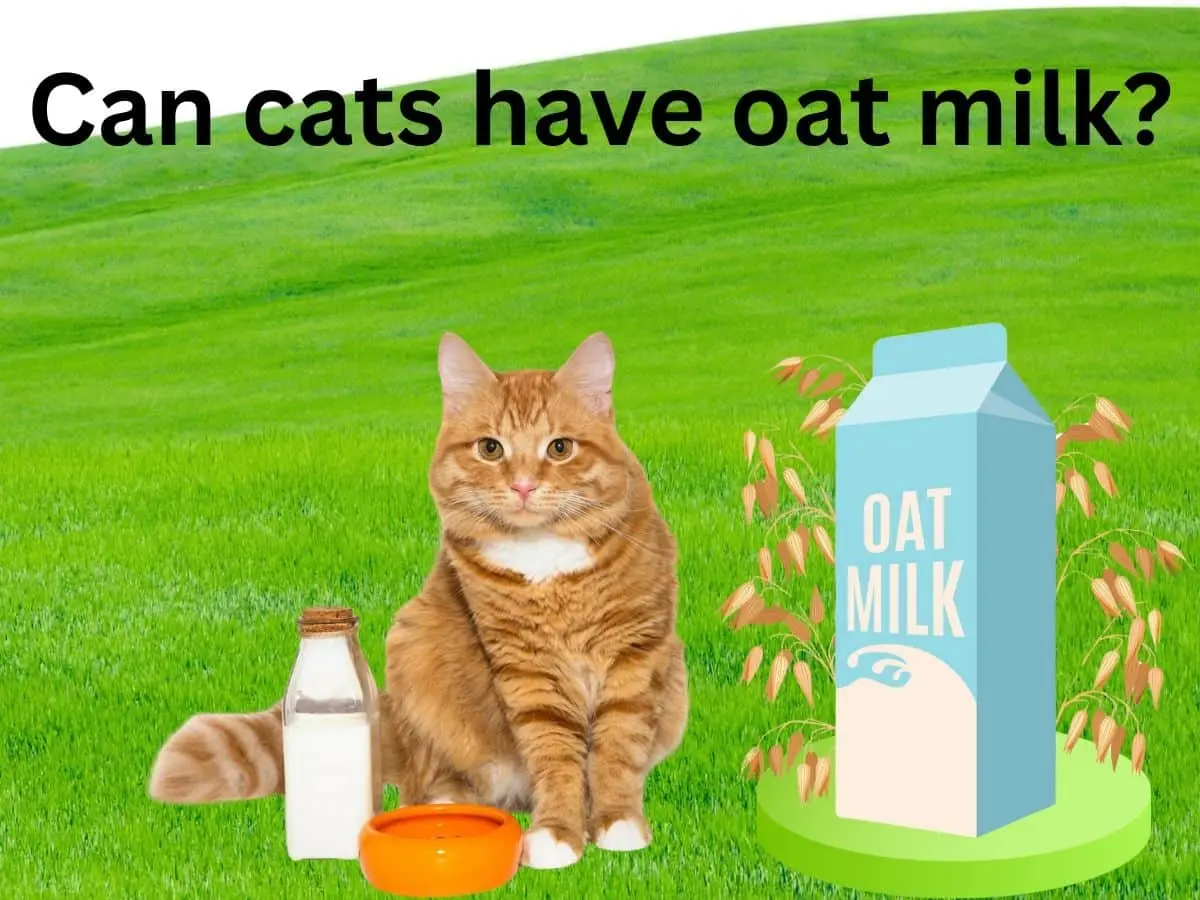Can Cats Have Oat Milk?
Have you ever found yourself about to pour a splash of oat milk into your cat’s bowl, paused by the sudden query: “Can a cat have oat milk?” If so, you’re not alone. This question has sparked curiosity and concern among countless pet owners. Understanding what constitutes a healthy diet for our lovely friends is crucial, and it is no surprise why alternatives to cow’s milk, like oat milk, are becoming a topic of interest. In this comprehensive article, we’ll explore whether oat milk is a safe and nutritious option for your lovely cute companion.
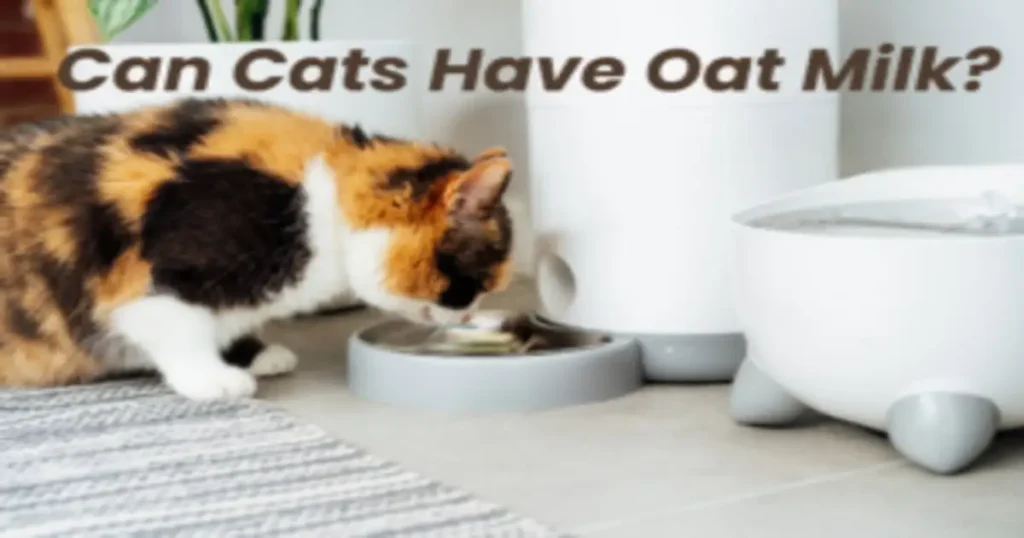
Nutritional Concerns for Cats
Cats are obligate carnivores, which means their diets should be heavily meat-based to provide all the essential nutrients they require. The nutritional profile of oat milk does not align with this biological necessity; thus, it cannot serve as a complete food source or a water replacement.
While oat milk is non-dairy and therefore lacks lactose, giving it to your cat isn’t as straightforward as one might assume. It’s also crucial to remember that oat milk has been processed and might contain added ingredients, such as sweeteners, that could potentially harm your pet. So, to understand detailed information about the query can cats have oat milk, keep reading to the end of this article.
Should You Offer Oat Milk to Your Cat?
Here’s what you need to consider before pouring oat milk into your cat’s bowl:
A. Lactose Intolerance and Its Implications
The presence or absence of lactose in oat milk is therefore a pivotal factor. Oat milk is naturally lactose-free, which might seem to make it a suitable choice for those wanting to avoid the pitfalls of dairy. However, lactose isn’t the only consideration when assessing a cat’s compatibility with oat milk.
Cats are often lactose intolerant, meaning their bodies lack sufficient lactase, the enzyme required to break down lactose found in milk. As kittens, they produce this enzyme to digest their mother’s milk, but this ability typically decreases as they age. Consequently, while oat milk is free of lactose, it doesn’t necessarily make it suitable for adult cats. Offering lactose-free alternatives might seem like a benign choice, yet it’s crucial to acknowledge that a cat’s digestive system is principally designed for processing a carnivorous diet, and plant-based drinks like oat milk can still lead to digestive issues and nutritional shortcomings.
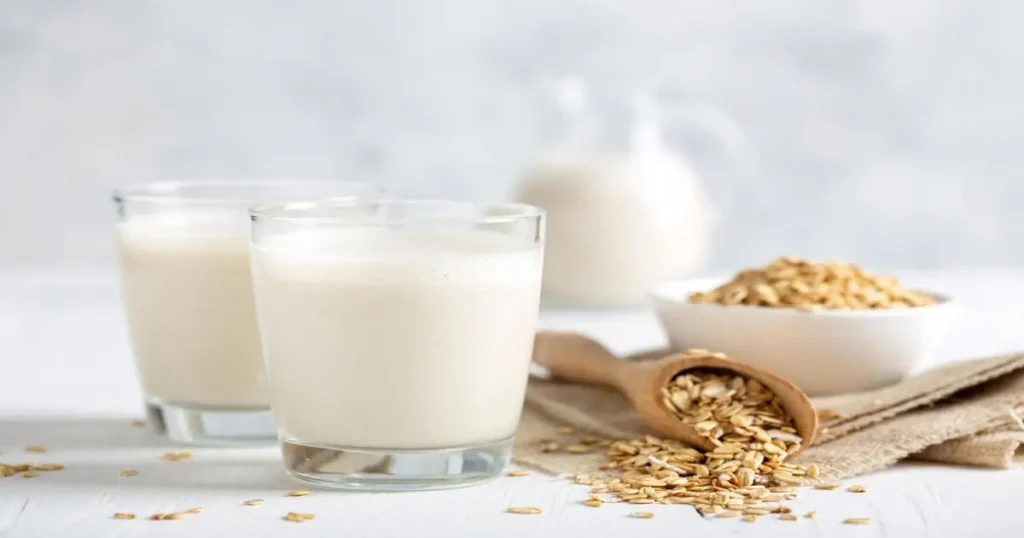
B. Nutritional Requirements for Cats
For cats, essential nutrients like taurine, arachidonic acid, vitamins A, and D, and certain amino acids, which they cannot produce themselves, must come from their diet. These nutrients are predominantly found in animal products, so substituting significant portions of a cat’s diet with plant-based products like oat milk could lead to deficiencies.
C. Oat Milk and a Cat’s Diet
Oat milk may be low in the nutrients cats require and also introduce higher carbohydrate levels, which are not ideal for a cat’s dietary needs. If your veterinarian gives you the green light for oat milk, ensure it’s only in very small amounts to prevent digestive upset or nutritional imbalance.
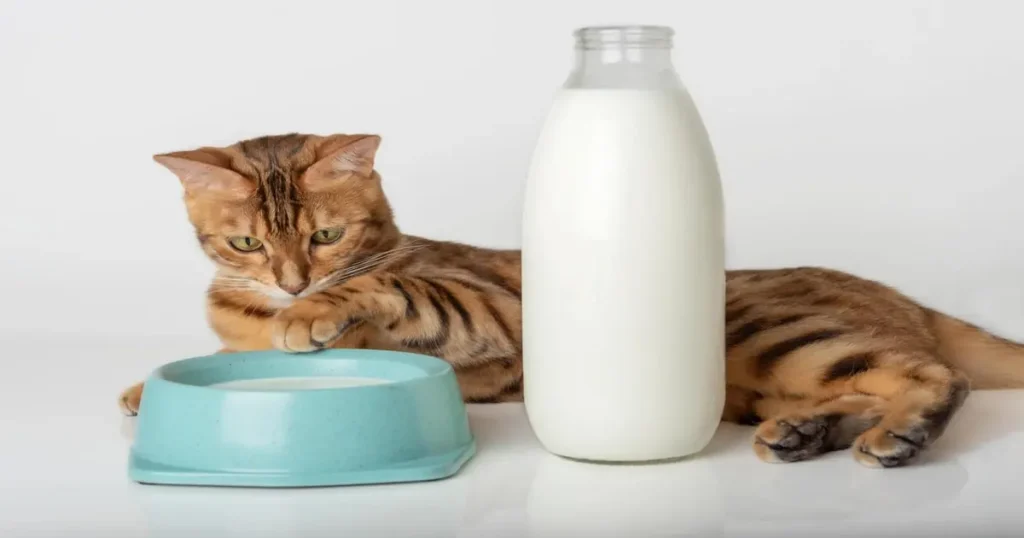
Can a cat have oat milk? Expert Opinions and Insights
To gather a well-rounded view of the question of can cat have oat milk, several veterinarians and animal nutrition experts explained the possibility of including oat milk in a cat’s diet.
A. Insights from Veterinarians
Veterinarians caution that while oat milk lacks lactose, it should still only be considered as an occasional treat rather than a staple of a cat’s diet. It cannot provide the full spectrum of nutrients needed by cats, and it’s also important to ensure the oat milk doesn’t contain additives like sugar or chocolate, which are harmful to cats.
B. Analysis of Potential Benefits and Risks
Some argue that the occasional serving of oat milk may provide hydration or even serve as a low-calorie treat. However, the risks associated with feeding your cat something outside their nutritional needs outweigh the potential benefits.
C. Recommended Guidelines
When it comes to offering oat milk to cats, the professional consensus is to do so sparingly and infrequently — if at all. Always opt for plain, unsweetened oat milk and introduce it to your cat’s diet in small quantities to monitor their reaction.
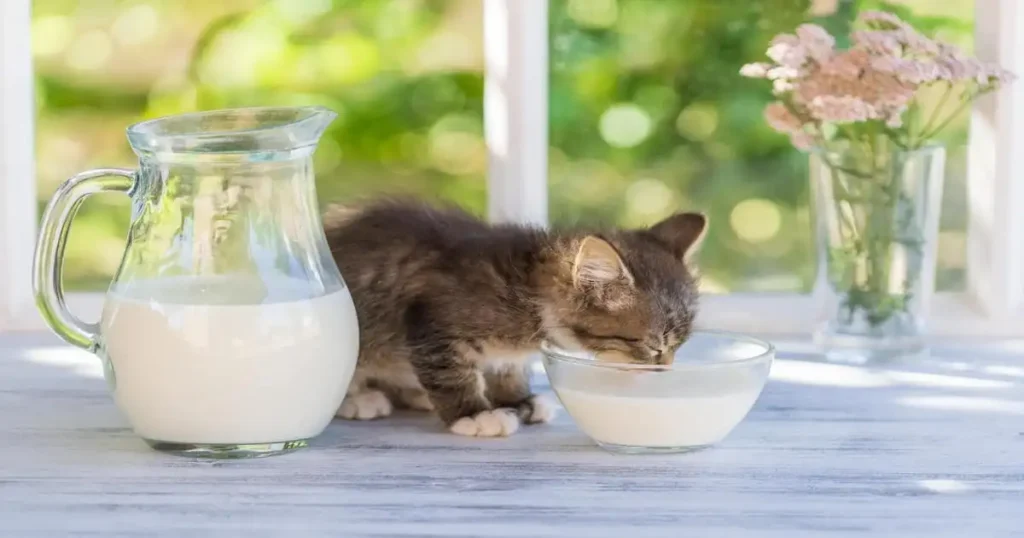
Cat Owners Perspectives
Cat owners who have experimented with offering oat milk to their pets have varied experiences. Some note that their cats enjoyed the taste without any immediate adverse effects, while others have reported stomach upset following its consumption.
A. Cat Owners’ Experiences
It’s important to recognize that each cat is unique and may react differently to certain foods. Anecdotal evidence from cat owners should not replace expert advice but can provide insights into how cats have reacted to oat milk in different scenarios.
B. Consideration of Varying Viewpoints
While some cat owners are in favor of offering plant-based milk alternatives like oat milk, others firmly believe that keeping a cat’s diet close to its natural carnivorous state is the best approach for health and longevity.
It’s crucial to monitor your cat’s reaction and overall health when introducing new foods into their diet. If you notice any changes in behavior or digestion, consult with your veterinarian to determine the cause and course of action. Remember, moderation is key when it comes to feeding our feline companions. Let’s prioritize their well-being by providing a balanced and tailored diet that meets their unique needs.
How Much Oat Milk Can Cats Have?
As mentioned earlier, oat milk should only be offered to cats sparingly and in small quantities. A general guideline is no more than a few tablespoons per week, as a treat or added to their regular food. Can a cat have oat milk is a topic of concern for most cat owners for their cat’s diet. So, pet owners need to be very careful while choosing a diet for their pets.
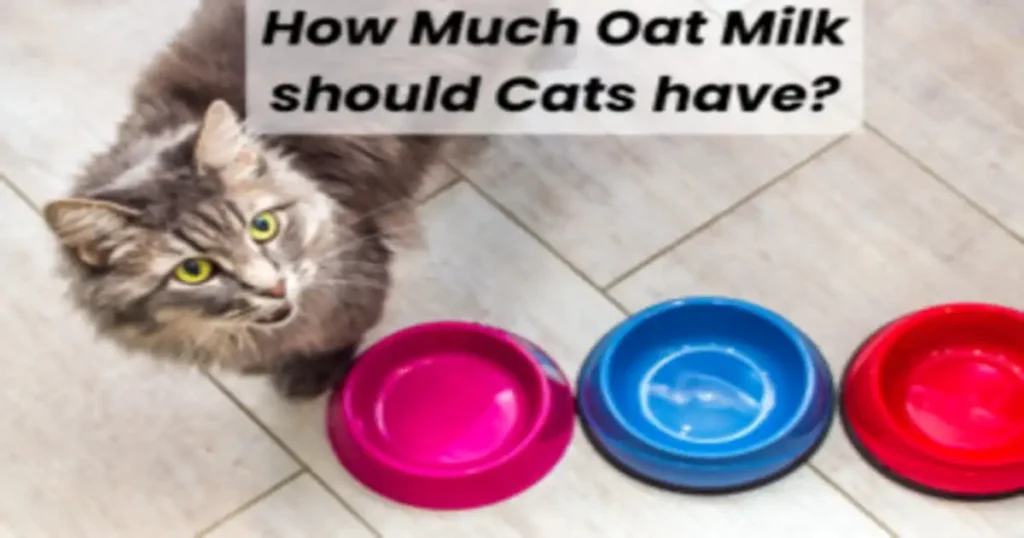
Signs Your Cat Drank Too Much Oat Milk
Even with small quantities, some cats may experience discomfort after drinking oat milk. Keep an eye out for the following signs that your cat may have had too much:
- Vomiting or diarrhea
- Lethargy or decreased appetite
- Excessive thirst or urination
If you notice any of these symptoms, it’s best to avoid offering oat milk in the future and consult with your veterinarian for further guidance.
To explore all about your pet’s diet, visit our other articles.
Is Oat Milk Harmful to Cats?
Oat milk, while normally considered risk-free for human beings, may not be appropriate for cats. Felines are obligate predators, meaning their diet regimens must primarily contain meat. Oat milk lacks the vital nutrients that felines require for ideal health and wellness, such as taurine, arachidonic acid, and specific vitamins found in pet products. Furthermore, some pet cats might be lactose intolerant, but even lactose-free oat milk can pose dangers as a result of its carbohydrate content and possible additives. While oat milk is not naturally hazardous in small quantities, it ought to not replace water or a well-balanced cat food diet regimen.
What About Oat Milk with Sugar?
Oat milk with sugarcoated can be a lot more worrying for cats. Sugar is not an all-natural part of a pet cat’s diet and can cause different wellness issues, including excessive weight, diabetes mellitus, and dental problems. Cats do not have the taste receptors for sweet taste, so they do not need sugar in their diet plan. Offering oat milk with sugar to pet cats can contribute to weight gain and other metabolic problems. For that reason, it’s ideal to avoid providing oat milk with added sugar to cats and opt for plain, unsweetened options.
Is Oat Milk Better Than Cow’s Milk for Cats?
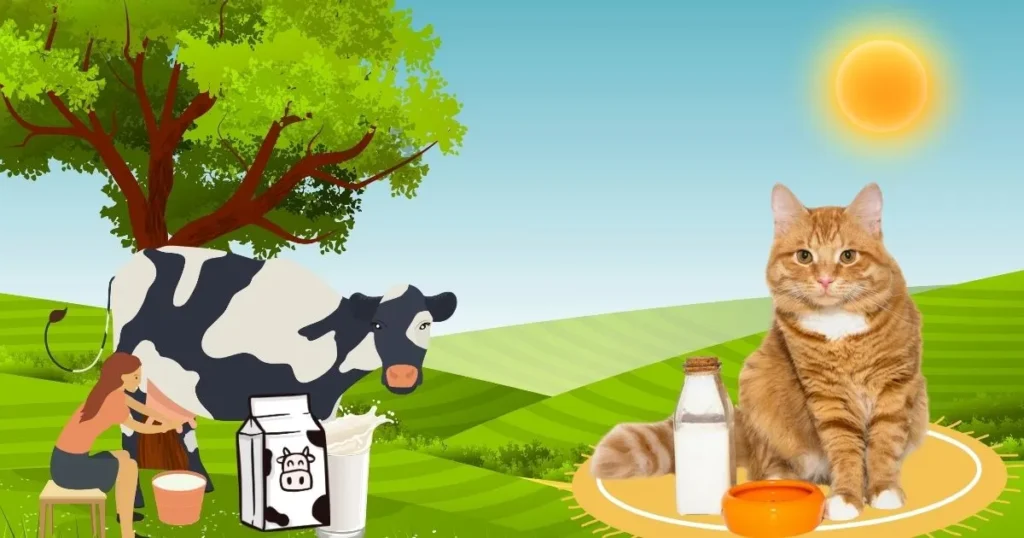
Understanding the nutritional needs of cats is essential when deciding whether or not oats are a healthier option for them than cows’ milk. The bodies of cats are designed for them to survive on an animal-protein diet. Oat or cow milk does not provide the nutrients that cats require for optimal health.
Oat milk does not contain lactose. This is a problem for many cats who are lactose intolerant and may cause diarrhea. Oat milk is lacking in essential nutrients that cats need to be healthy, like taurine and arachidonic acids.
Both oat and cow milk can contain sweeteners or additives that are harmful to cats and may contribute to obesity, diabetes, and other health issues.
Summary: Neither oat nor cow milk is nutritionally suitable for cats. Cats should drink water instead as their main source of hydration, and get balanced nutrition through a diet that is complete and appropriate for the species. Consult a vet to ensure that your cat receives the nutrition it needs.
Alternative Options for Hydration
While oat milk may not be the best option for cats, several alternatives to plain water can provide hydration and added nutrients. Some options include chicken broth, tuna water, or even a small amount of wet food mixed with water. Ultimately, the health and well-being of your lovely friend should be the top priority when considering alternative food choices. A well-fed and hydrated cat is a happy and healthy companion for years to come!
Conclusion
In summary, the key phrase here is “moderation and caution.” While oat milk is lactose-free and potentially less risky than cow’s milk, it still does not meet the dietary requirements of cats and should be regarded as an occasional treat, not a dietary staple. Prioritizing a meat-based diet that provides all the necessary nutrients for your cat is paramount. Safe indulgences in small amounts are acceptable, but it’s always best to consult with a vet before making any significant changes to your pet’s diet.
Remember, our lovely cats rely on us to make informed decisions about their health and wellness. “Can a cat have oat milk?” — They can, but should they frequently be the more critical question?
As we’ve explored this topic, let us consider the broader responsibility we hold as pet owners to nourish our animals with the right food that caters to their specific needs. So the next time you reach for that carton of oat milk, think twice about how it fits into a diet designed for a creature as unique and exquisite as the cat.
Frequently Asked Questions
Can kittens have oat milk?
Yes, kittens can have oat milk but only in small amounts and under the supervision of a veterinarian.
Is almond milk safe for cats?
Almond milk is not recommended for cats as it may contain additives or sweeteners that are harmful to them. It also lacks the necessary nutrients for their diet.
What other liquids can I give my cat for hydration?
Other safe options for hydration include chicken broth, tuna water, and small amounts of wet food mixed with water. Always consult with a veterinarian before introducing new liquids into your cat’s diet.
Should I give my cat cow’s milk instead of oat milk?
Cow’s milk should also be avoided as it contains lactose, which many cats are unable to digest. It is best to stick with water or alternative options recommended by a veterinarian for hydration.
Can I give my cat plant-based milk other than oat milk?
While plant-based milks like soy or coconut milk may seem like harmless alternatives, they may contain additives and lack essential nutrients for cats.
Read more about Cat foods:
